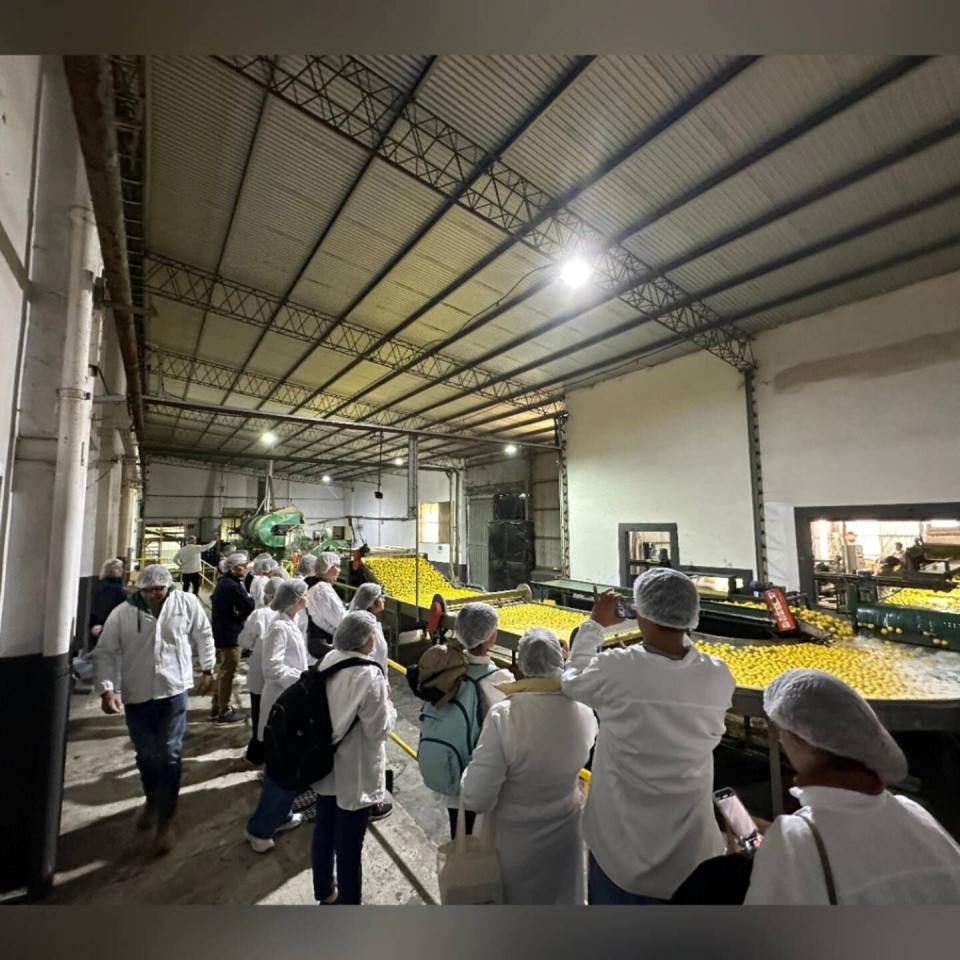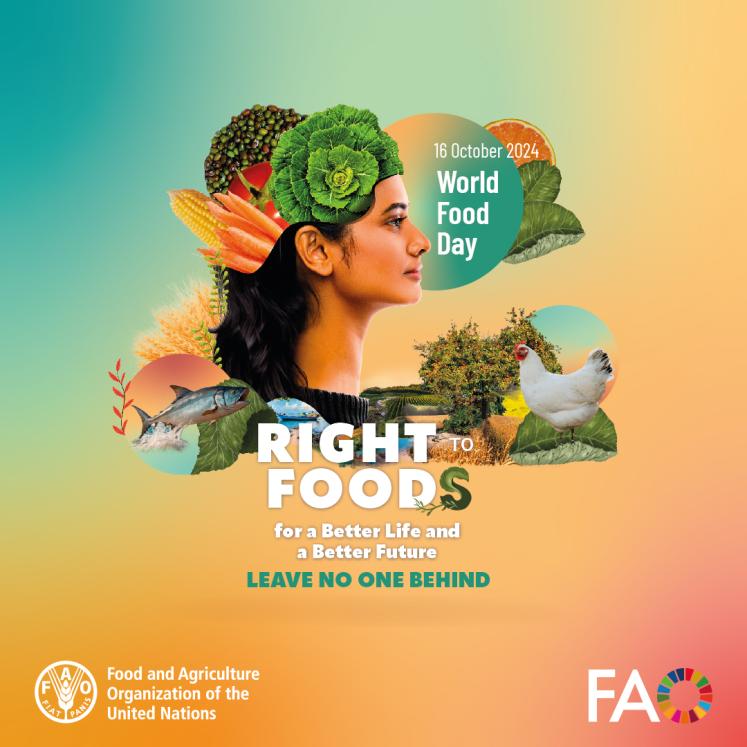It is World Food Day, and the question remains: How can we all access healthy, safe, and sufficient food? The proposals almost always seek to increase production and rethink ways of accessing food. However, a little-known topic connects both efforts: food losses of fresh produce between harvest and market.
For example, fungal infections after harvest severely affect global fruit and vegetable production. On this topic, we spoke with Dr. Julian Dib, coordinator of several UNU-BIOLAC courses on biological control of agricultural pathogens based on his work at the Biocontrol Laboratory in Citrus, PROIMI-CONICET (San Miguel de Tucumán, Argentina)
BIOLAC: How significant is the loss of agricultural products after harvest?
JD: Losses can reach up to 50% of the total produced in developed countries, which determines millions of dollars in losses with a tremendous socioeconomic impact. Chemically synthesized pesticides, specifically fungicides, are traditionally used to mitigate these postharvest losses. These act efficiently and are relatively inexpensive and easy to use in production. Growers have become dependent on these pesticides, and their use has spread to virtually all crops. Massive, sometimes disproportionate use has negatively impacted trade, the environment, and human health. In addition, pesticides cause soil and water pollution. But what is most worrying are these effects on health. Repeated contact with these fungicides can affect human fertility and alter hormonal systems. Several of them have been classified as possible carcinogens.
In addition to all these setbacks, different pesticides have already been banned, and others will be phased out soon. Fruit and vegetable production is on alert and urgently demands sustainable alternatives, such as biological control technologies.
BIOLAC: How does this biological control work?
JD: The foundation of biocontrol is using living organisms to control or combat other organisms considered pests. Plants and their fruits have a community of microorganisms that colonize them superficially and internally, known as the microbiome. For example, when we eat an apple, we ingest nutrients from this fruit and a community of associated microorganisms. The role of many bacteria and fungi in this microbiome has been demonstrated in the health of plants and fruits.
For example, in the course "Postharvest Fungal Diseases in Fruits: The Use of Sustainable Biocontrol Strategies," we study several cases of application of different yeast strains as efficient biocontrol agents against pathogens of citrus, apples, grapes, and pistachios, among other crops. Yeasts are single-celled fungi that can inhibit the development of phytopathogenic fungi that cause rot in fruits. In our laboratory, we have found a type of yeast called killer, which controls the rot produced by the Penicillium fungus in lemons. We are formulating these yeasts for practical application for local citrus production, especially for export lemons.
BIOLAC: The main objective of this application would be to reduce postharvest losses and the benefit for the farmer of stopping the handling of synthetic toxins remains. What other benefits could you count on using biocontrols such as killer yeasts?
JD: Substituting pesticides with biocontrol agents has direct and indirect impacts.
International markets, especially Europe, demand fruit with minimal pesticide residues. Thus, the use of pesticides generates trade barriers to demanding markets that generate more significant dividends.
There is also an epidemiological consideration: just as antibiotics for human infections generate resistant bacteria, fungicides have also generated the appearance of resistant fungi that are difficult to control.
Given the consequences of the use of pesticides for the environment and human health, I believe that the trend is to go towards a more sustainable and respectful production of the ecosystem and increasingly independent of the use of toxic products, including organic fertilizers and biofertilizers, another of our lines of work in the laboratory: Fertilizers enriched with beneficial native microorganisms, specifically adapted to local crops.
We have also addressed the study of the microbiomes of the fruits under research and the impact that a biocontrol agent has on biodiversity. Our preliminary studies show that the microbiome has a greater diversity in organic lemons than in non-organic lemons. In addition, we saw that applying a biological control yeast does not significantly affect the microbiome, confirming in some way that these technologies would not affect the natural composition of organisms associated with these fruits.
These sustainable technologies undoubtedly favor the ecosystem, conserve its biodiversity and the health of the soil and water, and mitigate the risk of fungicide resistance.
BIOLAC: What is the current scope and obstacles to implementing this type of technology?
JD: There is an increasing offer of biological control technologies, particularly those adapted to specific crops. For mass use, investing in reducing production costs and adapting the traditional production process to apply biocontrol agents is necessary. In our case, we have formulated biological control agents for the production of lemons; we have worked with citrus growers and packaging companies to identify possible points of application and try to adapt the traditional packaging process.
In many regions, there needs to be more regulations recognizing the application of some biological control agents. Implementing policies that promote and reward this type of technology would be favorable. There must be protocols to assess the safety of using biocontrol products.
A significant challenge of this type of technology is that its efficiency can vary according to the application conditions or environmental or adaptability factors. In other words, sometimes they work, and sometimes they don't. A biocontrol yeast often adapts to specific crops and not others, so it is essential to work with native organisms and adapt to the needs of local crops.
___________________
Dr. Dib would like to recognize the work of the whole team at the Biocontrol Laboratory in Citrus, some of whom are also UNU-BIOLAC fellows and alumni: Dr. Martina Pereyra, Dr. Florencia Pérez, Dr. Daniela Maza, Dr. Cecilia Rasuk, Lic. Mariana Diaz, Lic. Marcia García, Lic. Florencia Chacón.
___________________
The Food and Agriculture Organization of the United Nations (FAO) has set ambitious goals to meet future food security challenges. The world's population is expected to increase from 7 billion to more than 9 billion people by 2050. Food production will need to increase by 60% globally over the same period to meet growing demand.
In addition, FAO highlights the need to transform agri-food systems to make them more efficient, inclusive, resilient, and sustainable. This includes adopting sustainable agricultural practices, improving governance for development, and promoting sustainable livelihoods and work.
In summary, the combination of innovations in biological control and the goals set by FAO gives us a clear roadmap to move toward more sustainable and efficient agriculture.


